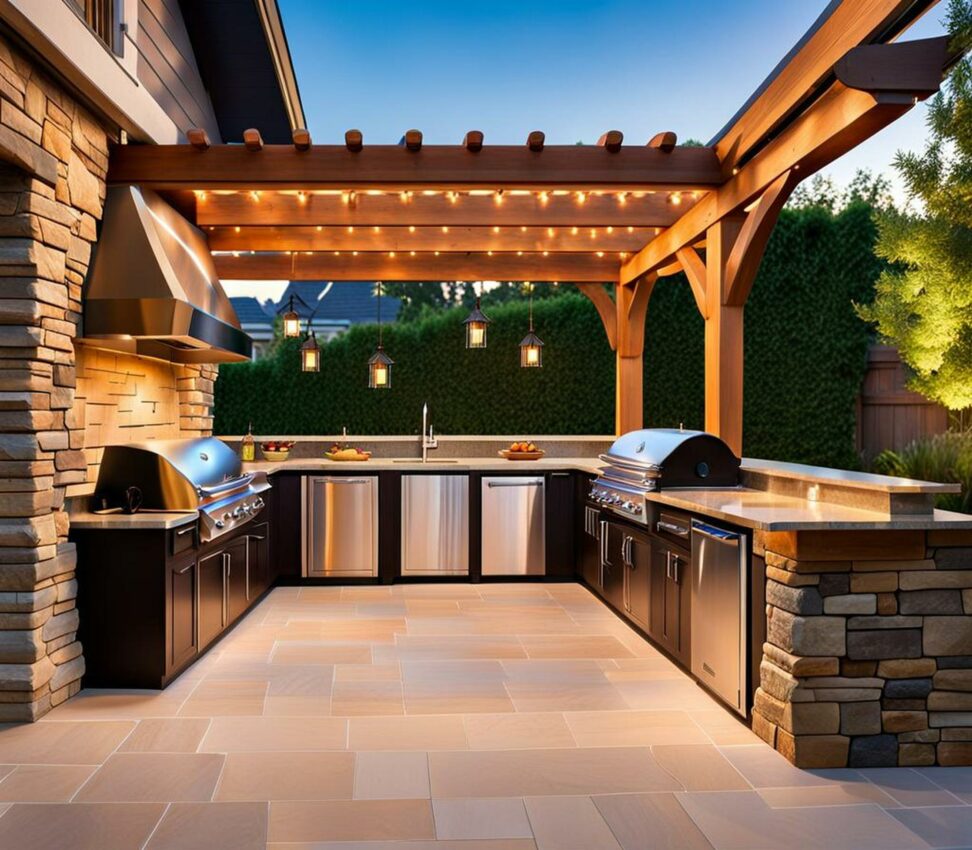The Complete Guide to Planning an Outdoor Kitchen Against Your Home
Outdoor kitchens are becoming immensely popular additions to backyards and patios across the country. Home chefs are finding an outdoor kitchen against the house provides the ultimate environment for grilling, dining and entertaining in style.
Placing your outdoor kitchen right alongside your home offers many advantages in terms of convenience, aesthetics and functionality. But success requires careful planning and forethought. This complete guide provides everything you need to know to design and install the ideal outdoor kitchen adjacent to your house.

Optimal Placement Against the House
Choosing the right location is a key first step. The optimal spots are often in a corner of the yard or along an exterior house wall.
Tucking your outdoor kitchen into a corner creates a cozy, private feel while allowing access from two sides. This versatility makes for great workflow and traffic flow.
Positioning the kitchen against a straight section of wall allows you to tap into the home's existing electrical, gas and plumbing lines. This saves major costs. An extended roof eave also provides natural weather protection.
Other Placement Tips
- Allow enough room for people to comfortably move around the kitchen
- Locate 10-15 feet from the indoor kitchen door for convenient cooking flow
- Angle grill away from house interior to minimize smoke/grease
Utility and Infrastructure Requirements
Outdoor kitchen appliances and fixtures require access to basic utilities. Planning ahead is crucial for seamless installation.
Electricity and Lighting
You’ll need adequate electrical outlets to power appliances like refrigerators, microwaves and mixers. Installing overhead and task lighting ensures safe evening use.
Plumbing
Running water lines and drains to accommodate a sink is ideal. The sink allows easy cleanup and food prep. Use flexible tubing and make connections accessible.
Gas Lines
Natural gas feeds built-in grills, rangetops and other fuel-powered appliances. Tap into your home’s gas supply or install propane tanks.
Ventilation
Proper ventilation carries smoke, grease and odors away from the kitchen. An exterior vented hood over the grill is especially important.
Design and Material Considerations
Choosing durable, weather-resistant materials ensures your outdoor kitchen will withstand the elements in style.
Countertops
Granite, marble or porcelain make excellent countertop surfaces. Seamless, non-porous materials prevent stains and damage.
Cabinetry
Look for waterproof cabinets in stainless steel or high-grade plastics. Design cabinet facades to match your home’s exterior for a cohesive look.
Tile or stone backsplashes protect walls from splatter and are easy to wipe clean. Avoid grout which can harbor mildew.
By planning infrastructure needs, designing for durability and tapping into your home’s utilities, you can create the ultimate outdoor kitchen against your house for convenience and entertainment.